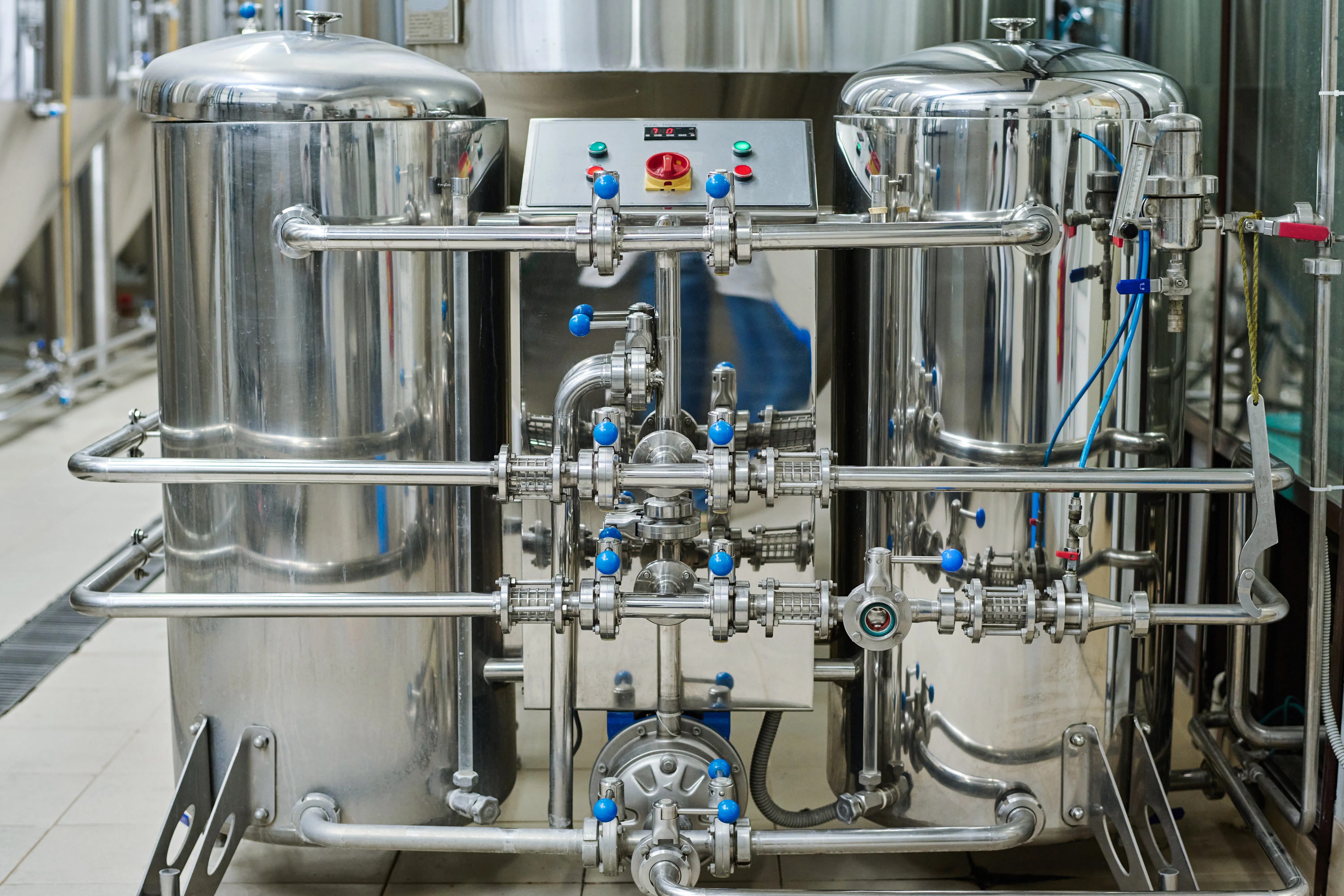Fermentation is a cornerstone process in the food and beverage industry, utilizing microorganisms such as bacteria and yeast to transform complex organic compounds into simpler ones. This biochemical process is vital for producing diverse products, enhancing flavors, textures, and nutritional values, and preserving foods by curbing harmful bacterial growth.
Understanding Fermentation
Fermentation involves breaking down carbohydrates and sugars into compounds like alcohol, organic acids, and gases. This transformation is essential for crafting a variety of food and beverage products:
- Alcoholic Beverages: Beer, wine, whiskey, gin, vodka, and other spirits rely on yeast converting sugars into alcohol through fermentation.
- Bread and Baked Goods: Fermented doughs, like those used in sourdough, rye, and pumpernickel bread, develop distinctive flavors and textures.
- Dairy Products: Yogurt, cheese, and kefir fermentation involves bacteria converting lactose into lactic acid, providing tangy flavors and preservation.
- Vegetables: Products like sauerkraut, kimchi, and pickles arise from bacteria fermenting sugars in vegetables to produce lactic acid and unique flavors.
- Meat Products: Fermented meats such as salami and pepperoni use bacteria to produce lactic acid, preserving the meat by inhibiting harmful bacterial growth.
The Fermentation Process
The fermentation process requires a nutrient source, typically sugars or starches, and microorganisms to facilitate the breakdown. It generally consists of two main stages:
- Primary Fermentation: Microorganisms consume nutrients and produce energy, alcohol, or lactic acid. This stage is evident in the initial development of products like beer or wine.
- Secondary Fermentation: Utilized to further refine product flavor and texture, often involving additional ingredients like hops or fruits.
Market Insights and Innovations
The fermentation market is expanding rapidly, driven by consumer interest in health benefits and unique flavors:
- Demand Increase: There's a growing appetite for fermented foods due to their health and natural benefits, aligning with the rise of vegan and plant-based diets.
- Technological Advances: Innovations like bioreactors and high-throughput screening enhance fermentation efficiency and cost-effectiveness.
- Product Development: Fermentation encourages innovation in developing novel flavors and textures, giving rise to products like plant-based cheeses and kombucha.
- Regional Variations: Global interest in traditional and new fermented foods fosters fusion cuisines and cultural exchange.
Conclusion
Fermentation is more than a time-honored technique in the food and beverage industry; it's a dynamic field of innovation and growth. As demand for natural, healthy, and diverse products increases, so does the need for expertise in food processing, manufacturing, and consultancy. From food factory design and engineering to food technology consulting, the industry's expansion offers abundant opportunities for food consultants and engineers to drive future advancements.
 PMG stands for Projects Management Group. We provide state-of-the-art Engineering Services to build world-class food processing factories.
PMG stands for Projects Management Group. We provide state-of-the-art Engineering Services to build world-class food processing factories.  Engineering is the difference between Chaos and Excellence. If you are going to do it, do it right.
Engineering is the difference between Chaos and Excellence. If you are going to do it, do it right.  Explore the diverse range of Products in the Food Processing Industry.
Explore the diverse range of Products in the Food Processing Industry.  Explore the technologies at the heart of the the Food Processing Industry.
Explore the technologies at the heart of the the Food Processing Industry. 


 Back
Back 



